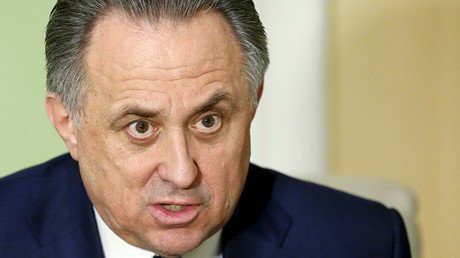IOC extends Russia sanctions over doping allegations
The International Olympic Committee (IOC) executive board said on Wednesday that the restrictions introduced against Russia on July 19 over widespread doping allegations have been prolonged "until further notice."
Declaration of the IOC Executive Board https://t.co/lIFsivvoohpic.twitter.com/NM5JhumXh9
— IOC MEDIA (@iocmedia) December 7, 2016
The announcement was made ahead of Friday’s release of the second and final report into the Russian scandal by World Anti-Doping Agency investigator Richard McLaren.
“I can only conclude that the IOC has seen the latest part of the McLaren Report, and has made its decisions on the basis of its conclusions, which appear to have gone against Russia,” Ellis Cashmore, professor of sociology at Aston University, who specializes on sport, told RT. “The most crucial part of the document, as we read, is that they are encouraging all of the world’s sports federations to freeze preparation for any events inside Russia.”
The sanctions against Russia that were introduced after McLaren’s first report were initially planned to remain in force until the end of 2016.
According to Olympic bosses, the allegations put forward by McLaren against Russia “go to the heart of the Olympic Games and are a fundamental attack on their integrity.”
The IOC stressed that the evidence in the report would have to be evaluated and "due process has to be followed,” meaning that any Russian officials and athletes implicated "have to be given the right to be heard."
After the completion of the investigation, the committee will find "the appropriate measures and sanctions" against those guilty of violations, including disqualification from the Olympics.
Over the last couple of years, Russia has been fighting accusations of large-scale doping use by its athletes, with claims that RUSADA – its anti-doping agency – has been turning a blind eye to it, as well as being unduly influenced by the Sports Ministry.
The allegations first surfaced following a documentary by German broadcaster ARD in 2014, eventually leading WADA to suspend RUSADA’s laboratory in November 2015.
On June 18, 2016, WADA published a report from Canadian lawyer McLaren that detailed the results of his investigation into doping allegations at the Sochi 2014 Winter Olympic Games.
Based on those findings, WADA recommended that the IOC, the International Paralympic Committee (IPC), and all international sporting federations exclude Russia from their competitions.
The sanctions by WADA led to a ban from the 2016 Rio Olympics for Russian track-and-field athletes and saw the whole of the country’s team missing the Paralympics.













